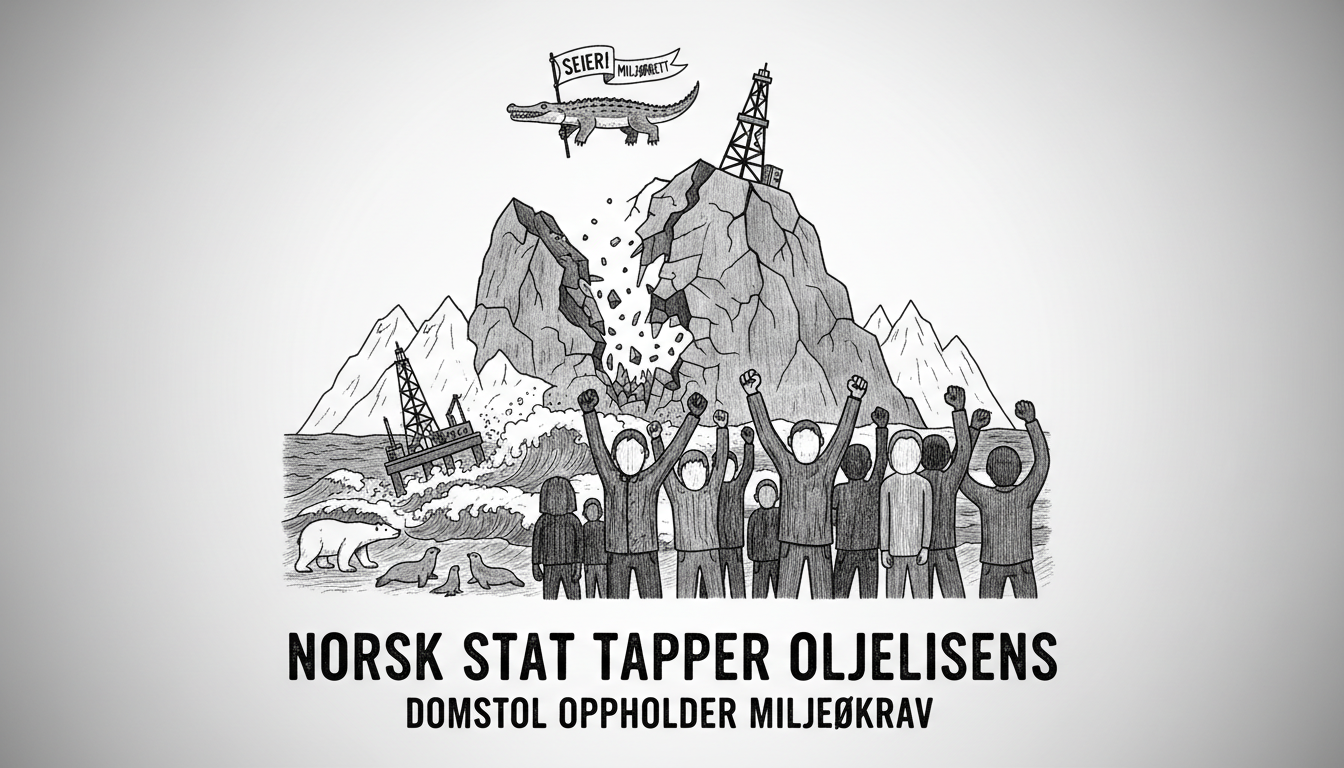The Norwegian government has lost another major legal battle over oil field development. An appeals court upheld a lower court ruling that invalidated permits for three North Sea oil fields. This represents a significant victory for environmental groups challenging Norway's fossil fuel expansion.
Borgarting Court of Appeal ruled against the state's appeal in the case concerning Breidablikk, Tyrving and Yggdrasil oil fields. The court reached the same conclusion as Oslo District Court did earlier this year. Environmental organizations Greenpeace and Nature and Youth prevailed on all points in their lawsuit against the state.
Frode Pleym, head of Greenpeace Norway, stated the government must immediately halt activity on the fields. He emphasized that no one stands above the law, including the state. The court also ordered the state to cover legal costs approaching seven million Norwegian kroner.
This legal defeat forces the Norwegian government to conduct new environmental impact assessments for the three controversial oil fields. The ruling represents a major setback for Norway's oil industry expansion plans in the North Sea region.
Norway faces increasing tension between its oil-dependent economy and climate commitments. The country is Europe's second-largest oil and gas exporter after Russia. Yet it also positions itself as an environmental leader with ambitious emission reduction targets.
This case highlights growing legal challenges to fossil fuel development across Scandinavia. Environmental groups are increasingly using courts to enforce climate policies. Similar lawsuits have emerged in Sweden and Denmark challenging fossil fuel projects.
The appeals court decision demonstrates the strength of Norway's environmental protection laws. The legal system appears willing to hold the government accountable for proper environmental review processes. This could set important precedents for future energy projects.
International observers watch Norway's oil policies closely. The country manages the world's largest sovereign wealth fund, built on oil revenues. Recent years have seen the fund divest from some fossil fuels while Norway continues new oil exploration.
What happens next with these three oil fields remains uncertain. The government could potentially appeal to Norway's Supreme Court. Alternatively, it might comply with the ruling and conduct new environmental studies. Either approach will delay development by months or years.
This legal battle occurs amid broader debates about Norway's energy future. The country faces pressure to transition from oil while maintaining economic stability. How it balances these competing priorities will influence energy policy across Northern Europe.

